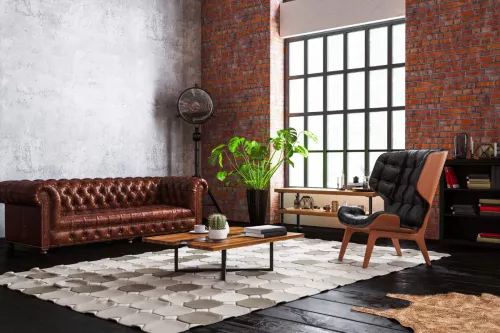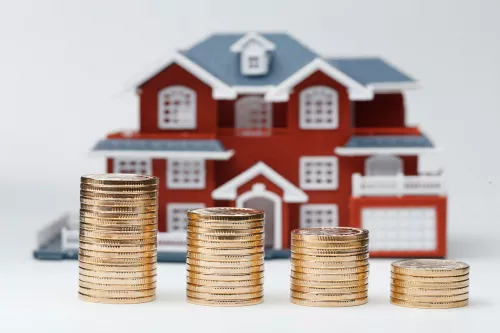When it comes to home improvement, selecting the right windows is paramount. Windows are more than just functional elements that facilitate the entry of light and air; they significantly contribute to the aesthetic appeal and energy efficiency of your home.
The process can be kind of confusing with a plethora of options available, but by considering factors such as your home's architectural style, the local climate, the desired levels of ventilation and natural light, maintenance needs, and your budget, you can navigate the choices more effectively.
Each type of window offers unique advantages, and making the right selection can significantly enhance both the functionality and visual charm of your property. Here, we aim to simplify your decision-making process by covering everything from budget considerations to the latest window styles, ensuring you are well-informed at every step.
How Much Should I Spend on Windows for My House?
On average, homeowners should expect to spend between $200 and $1,200 per window, with high-end options potentially exceeding this amount. The investment in new windows can vary widely depending on several factors, including material, size, and installation costs.
Keep in mind that high-quality windows can last for decades, making this a long-term investment in your home's comfort, energy efficiency, and resale value.
Which Type of Windows is Best for Home?
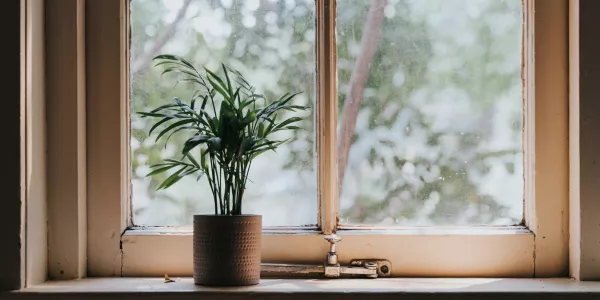
Choosing the right type of window depends on your specific needs, climate, and aesthetic preferences. Here are some popular options:
Double-Hung Windows
Double-hung windows are perhaps the most traditional style, with two sashes (upper and lower) that slide vertically. Both sashes in double-hung windows can be opened, allowing for better air circulation since you can open both the top and bottom of the window. They are also easier to clean because the sashes can tilt inward, allowing you to clean the exterior from the inside.
Casement Windows
Casement windows are hinged on one side and swing outward when you turn a crank. They offer excellent ventilation as they can be opened fully, and their design provides an unobstructed view. They are known for their energy efficiency, as the window seal is very tight when closed. Casement windows are ideal for areas where reaching the window requires effort, like over kitchen sinks.
Sliding Windows
Sliding windows, or glider windows, operate horizontally with one or more panels that move back and forth on tracks. They are easy to operate and ideal for spaces where an outward opening window would be impractical, like alongside walkways or patios.
Picture Windows
Picture windows are large, stationary windows designed to provide a clear, unobstructed view of the outside, much like a picture frame. They don't open, which makes them highly energy-efficient and suitable for rooms needing natural light without ventilation.
What Style of Window is Popular Now?
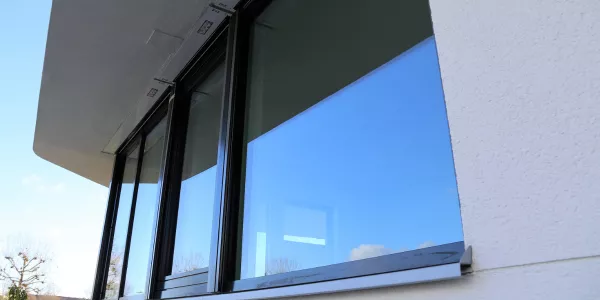
Contemporary window designs are characterized by their sleek lines, minimalist frames, and extensive glass surfaces, which maximize natural light and provide clear views. The trend includes large, floor-to-ceiling windows and sliding glass doors that effortlessly merge indoor and outdoor environments.
Black window frames have also become sought-after for their contemporary appearance and the way they frame outdoor landscapes. Alongside these trends, the demand for soundproof windows is surging, anticipated to maintain its prominence into 2024.
These acoustic windows are crafted to significantly lower external noise pollution, ensuring your home remains a peaceful and calm retreat.
What to Consider When Shopping for Windows
When shopping for new windows for your home, several key factors should be considered to ensure you make the best choice for your needs, aesthetic preferences, and budget. Here’s a detailed look at what to consider:
Energy Efficiency
Energy-efficient windows can significantly reduce your heating and cooling costs by minimizing heat transfer. Look for features like double or triple glazing, low-emissivity (low-E) coatings, and inert gas fills between panes, such as argon or krypton, which enhance insulation.
Additionally, the window frame material can impact energy efficiency, with materials like fiberglass, vinyl, and wood offering better insulation than aluminum.
Window Style
The style of window you choose should complement the architectural design of your home and meet your functional needs:
- Double-hung windows are versatile and allow for easy cleaning.
- Casement windows are hinged at the side and open outward, offering excellent ventilation.
- Awning windows are hinged at the top and open outward, allowing for ventilation even during rain.
- Sliding windows require minimal space and are ideal for tight spaces.
Material
The material of the window frames affects durability, maintenance, insulation, and aesthetics:
- Vinyl is affordable, low maintenance, and offers good insulation but may have limited color options.
- Wood offers natural beauty and excellent insulation but requires more maintenance to prevent rot and warping.
- Aluminum is durable and low maintenance but less energy-efficient unless it has a thermal break.
- Fiberglass is strong, durable, and energy-efficient but can be more expensive.
Glass Options
The type of glass and the number of panes can impact energy efficiency, noise reduction, and security. Laminated or tempered glass can enhance safety and security, while tinted or reflective coatings can reduce heat gain.
Installation
Proper installation is crucial for the optimal performance of your windows. Ensure that the installer has experience with the specific type of windows you are purchasing and that the installation complies with the manufacturer’s instructions.
Warranty and After-Sales Service
Check the warranty details and the manufacturer's after-sales service reputation. A good warranty can provide peace of mind, covering potential defects or issues with the windows.
Cost
While cost is an important consideration, it’s essential to balance upfront expenses with long-term value. Investing in higher-quality, energy-efficient windows can yield savings in energy costs and increase your home's value.
Local Climate
Your local climate can influence the best type of windows for your home. For instance, in hurricane-prone areas, impact-resistant windows may be necessary, while in cold climates, windows with excellent thermal insulation are preferable.
People also ask
Can I install windows myself?
While it's technically possible for homeowners with a good level of DIY skills to install windows themselves, there are several important considerations to keep in mind. First, window installation is a precise operation that requires not only the right tools but also a deep understanding of building structures and window mechanics.
Even small mistakes in measurement or fitting can lead to significant issues like air and water leaks, which can compromise the energy efficiency and comfort of your home.
Are energy-efficient windows worth the investment?
Investing in energy-efficient windows can offer significant benefits, making them worth the initial higher cost for many homeowners. These windows are designed to prevent heat transfer between the interior of your home and the outdoors, which can lead to substantial savings on heating and cooling costs.
In colder climates, energy-efficient windows can keep heat inside, reducing the need for heating, while in warmer climates, they can reflect exterior heat, keeping your home cooler.
How do I know if I need new windows?
Experiencing drafts around closed windows often points to failed seals or inadequate insulation, leading to energy wastage. Struggling to open, close, or lock your windows could signal mechanical issues or warping.
Condensation between panes suggests that the seal in double or triple-glazed windows has failed, compromising their thermal efficiency. Visible signs of wear and tear, such as chipping, deterioration, water stains, or termite damage, indicate structural issues. An increase in external noise penetration may show a decline in the window's insulating ability.
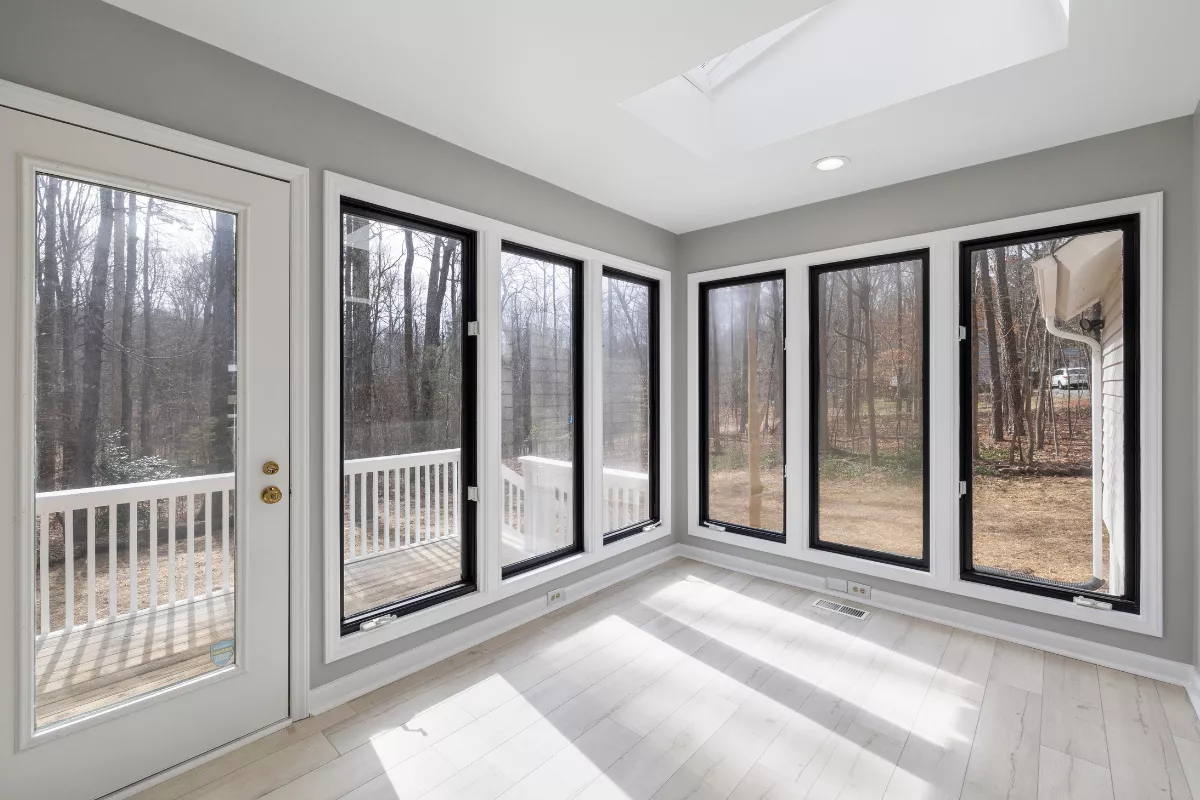
 Marcio Vasconcelos
Marcio Vasconcelos
